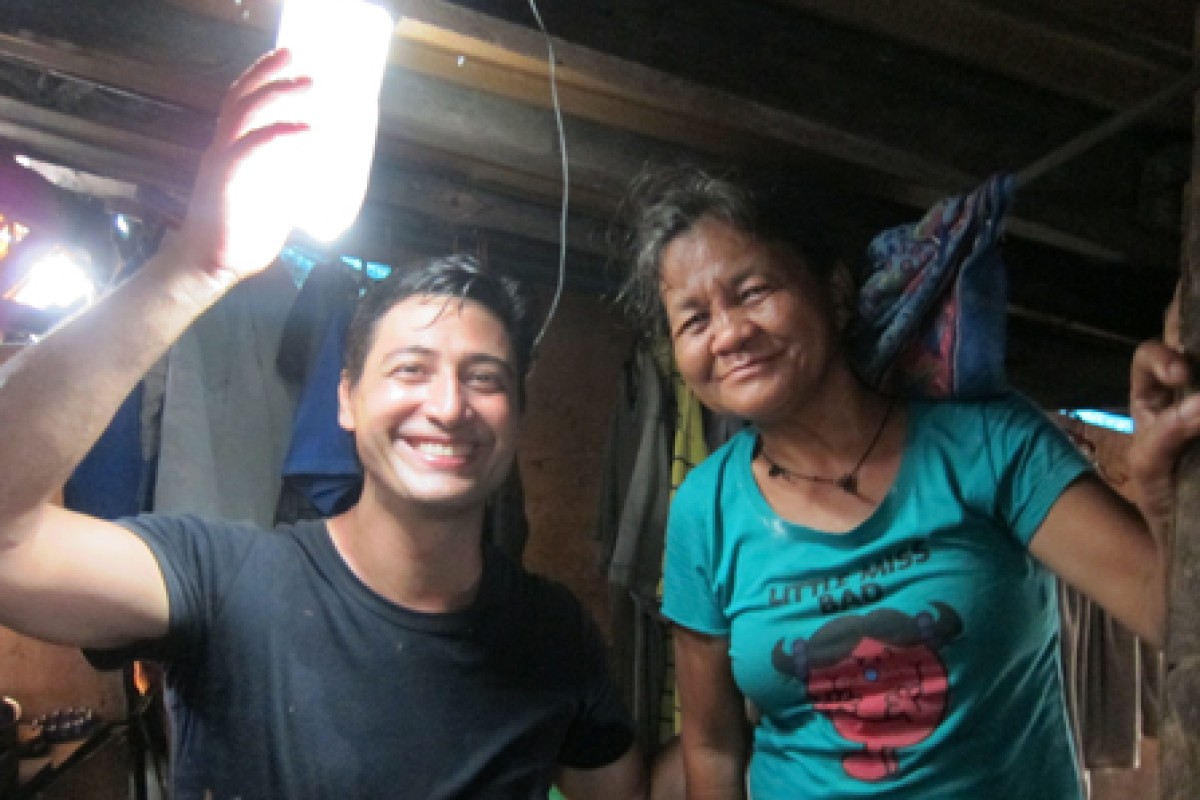
A simple plastic bottle, water and bleach offer a better quality of life to poor people
 Illac Angelo Diaz proudly holds a bottle bulb.
Illac Angelo Diaz proudly holds a bottle bulb.Solar light bulbs, or bottle bulbs - made by filling plastic soda bottles with water and bleach - solve all the problems.
A Manila-based organisation, My Shelter Foundation, created this simple technology and started an open-source project called Liter Of Light.
Since the first bottle bulb was put in place on the roof of a classroom in the Philippines in 2011, 35,000 more have lit up low-income households in 15 countries from Mexico to Kenya to Afghanistan.
This is how it works. If you cut a hole in a roof, sunlight shines through like a spotlight. But if you place a water-filled, two-litre bottle into the opening instead, water's natural light-reflecting quality lights up the room evenly like a 55-watt bulb. (See graphic at the end of the story)
"This simple technology can be put together in 15 minutes, costs only US$2 and reduces carbon emissions," says My Shelter Foundation founder Illac Angelo Diaz, who spoke at the Plasticity Forum - a forum about how business people can best use plastic - in Hong Kong earlier this month. "It doesn't only save on the cost of electricity, but also of a traditional light bulb, transformer, meter and line ... The price of electricity [in the Philippines] is one of the highest in Asia. With the money saved, parents can give their children better [health] and education."
But there's a problem: this idea won't work after the sun sets. That's why two months ago Diaz began to upgrade the bottle bulbs to include LED lights, solar panels and mobile phone batteries. The organisation uses some materials from China and Taiwan which don't pass quality control tests. So far, about 1,000 evening lights have been made. Each costs around HK$180.
A resident is delighted by her bottle bulb.
Some companies deliver solar-powered torches to the needy. But Diaz doesn't think this is a good idea.
"When the [torches] are turned on, everyone is cheering and happy," he says. "But when parts break or water leaks into the switch, we have a tonne of broken [torches] and batteries littering our provinces. And no one knows how to fix them."
Instead, the Liter Of Light project relies on parts that are easily available and affordable, as well as on skills that locals can learn easily. This means there are fewer worries when the product gets used a lot.
The organisation has also created jobs for trained locals. With small start-up funds and tools, about 60 co-operatives, or joint businesses, have been set up in the Philippines to make bottle bulbs easier to get hold of.
"The best thing is [it recycles plastic and can be copied] in many villages around the world," Diaz says.
You might also like:
- Two local organisations help disabled people to not only enjoy the arts, but also to participate
